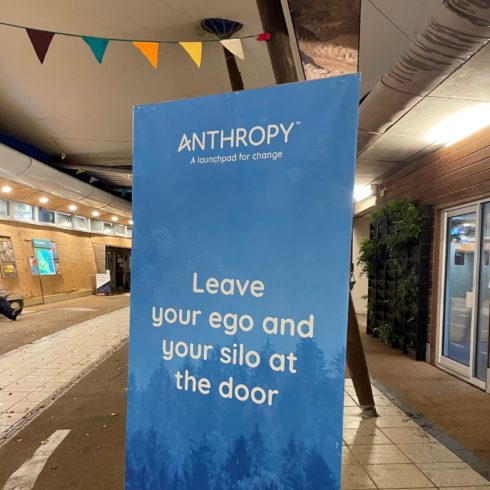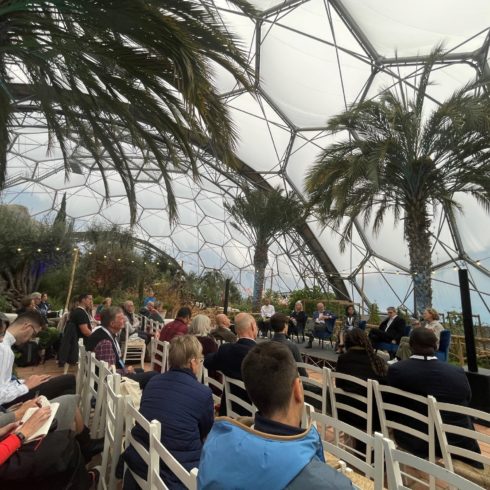Anthropy was dubbed by its founder John O’Brien as a “unique moment in time, to change the national narrative, consider the qualities we live by and build a positive, equitable, sustainable, successful future.” The significant ambition was matched with the venue, the megastructures of the Eden project, the first time it had ever been made available for a private event. John had chosen it to ensure that guests had shown a commitment to change by traveling to a remote location.
With 1,165 delegates from across civic society, politics and business, the purpose of the event was to create a blueprint to build a more harmonious and human centric future and outline ‘a vision for Britain’. Content for the gathering was themed around four key questions, all pertinent to the leaders of today and those hoping to shape the future:
- People – What is the quality of life we want in Britain for the next thirty years?
- Place – What qualities of place and planet do we need to achieve that quality of life?
- Prosperity – What qualities do we wish to see in a good economy and in the best of businesses and public sector organisations?
- Global Perspective – What qualities do we want to express to the world, to help solve shared issues such as poverty, climate change and human rights?

